
Brigitte Mira
Рождение : 1910-04-20, Hamburg, Germany
Смерть : 2005-03-08
История
From Wikipedia, the free encyclopedia.
Brigitte Mira (20 April 1910 – 8 March 2005) was a German actress. She worked in both theater and film, often with Rainer Werner Fassbinder.
Brigitte Mira's mother was German and her father was Jewish Russian. During the Nazi dictatorship, Mira took part in the propaganda series Liese und Miese. She played Miese (germ. bad one)--the bad role model according to Nazi ideology that listened to enemy radio stations and stockpiled rationed food. But her acting skills turned the "bad" character she portrayed into a likeable one. The series was soon cancelled for being counter productive. The propaganda directors did not know that Mira was half-Jewish. Even though she insisted on her naivete as a young woman and the fact she had to hide her identity, she was criticized later by some for taking part in these ads at all.
Even if Mira was born in Hamburg she early on moved to Berlin and through her TV work came to embody the typical Berlin sense of humor.
Notable performances include Emmi Kurowski in Fear Eats the Soul (1974), a role for which she won a German Film Award. In the 1980s Mira achieved another big success with the television series Drei Damen vom Grill.
Description above from the Wikipedia article Brigitte Mira, licensed under CC-BY-SA, full list of contributors on Wikipedia.
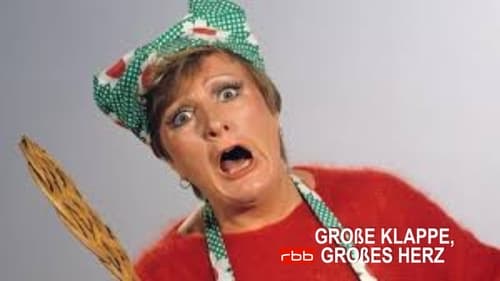
Gast

Emmi Kurowski (archive footage)
Mixing scenes of Douglas Sirk's All That Heaven Allows and Fassbinder's Ali: Fear Eats the Soul, François Ozon creates a new film about cinephilic contamination.

herself

Emmi
Shot with striking immediacy by a subjective camera, “Angst isst Seele auf” assumes the point of view of a black actor in Germany dealing with racist abuse as he prepares to appear in a play based on Fassbinder’s film, about the taboo relationship between an older German woman and an Arab man. Sharing the same lead actress (Brigitte Mira), cinematographer (Jürgen Jürges), and editor (Thea Eymèsz) as in Rainer Werner Fassbinder’s 1974 Film “Angst essen Seele auf”, these twin works offer a searing indictment of prejudice within German society.
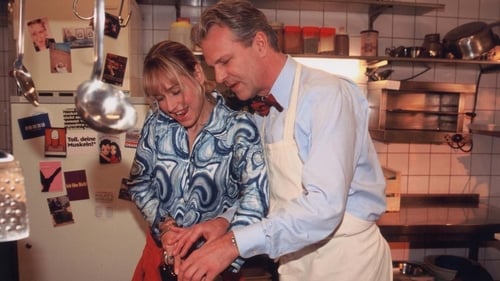
Olga von Reichenbach
The Berlin Observatory is facing the financial end. Against the will of the renowned physicist Robert von Reichenbach, the astrologer Lena Moosbach is set, which quickly establishes itself as a crowd puller and fills the empty cash registers of the planetarium. Worried about the scientific reputation of the observatory, Robert spat first poison and bile against the new colleague. But although the sober astronomer rejects horoscopes with the deepest conviction, he falls in love with the charming astrologer. However, when it turns out that she just feigned her Ph.D., Robert feels betrayed

Herself
An essay film in which filmmaker Rosa von Praunheim interviews "the willing victims of Rainer Werner Fassbinder."

Käthe Mühlmann

Self
Документальный фильм отслеживает создание и историю легендарного лейбла звукозаписи Blue Note.

Mieterin
Once upon a time very much alike the twenties in Germany, a little town is frightened to death by an uncaught child murderer. Since somebody has to be blamed the townspeople turn against an inconspicious policeman, a family-man who becomes suspected of the crime and therefore loses his job. Strangely enough, the only work he can find is to distribute candy on children, dressed up as clown. When a bunch of kiddies, including his own son who doesn't recognize the father due to the masquerade, plays a nasty trick to him, things turn really ugly...

Queen Mum
The British parliament has decided to get rid of the royal family. All of them have to leave the county and so they move to Germany, where they want to live by their distant relatives, the Bettenberg family. But these are not amused about their snobbish visitors, which all want to reside in their little house without doing any work to earn their living.

Frau im 'House of Usher'

Doris

Frau 1

Mrs. Blondell

Old Lou

Oma Kaminski

A crime comedy directed by Franz Josef Gottlieb.

Mrs. Kluge
A comedy directed by Franz Josef Gottlieb.

Vicky Fendrich
A movie directed by Franz Josef Gottlieb.

Mrs. Pecari

Barfrau Erna

Toilettenfrau
An East Berlin woman falls in love with a Swiss cook.

Gemüsefrau

Mrs. Niendorf
A comedy directed by Wolf Gremm.

Frau Willmsen

Frau Meyerdierks

Frau Friedrichs

Berta
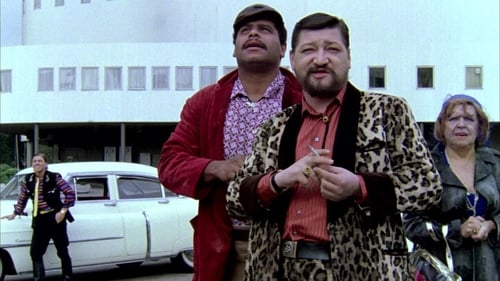
Personaldirektorin
В декорациях антиутопической Германии 1989-го года лейтенант полиции Янсен и его помощник Антон в поисках приславшего в главный офис Концерна письмо с угрозой подрыва бомбы оказываются втянуты в историю противостояния главы Концерна, "Синей Пантеры" и неких "крисмопомпас" и узнают намного больше, чем могли рассчитывать.

Helen Hobart

Gerti

Garderobiere

Martha

Frau Mürbes
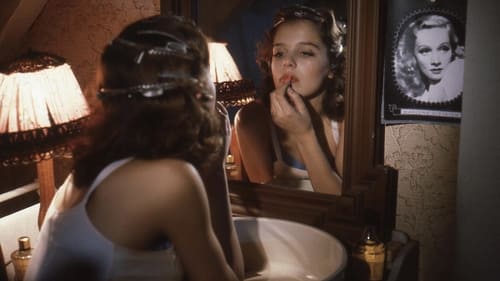
Denunziantin
The Political drama shows the denunciation and persecution of the 19-year-old Sanne in the Nazi state. After she falls in love with her cousin, Sanne is betrayed by her jealous aunt to the Gestapo.
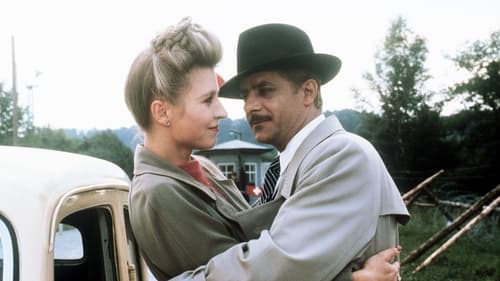
Nachbarin
История солистки кабаре, ставшей невероятно популярной из-за песенки «Лили Марлен», которая получила всенародное признание в годы Второй мировой войны. Молодая девушка так и не поняла, что с ней произошло, и какова настоящая цена успеха. Ее взлет и крах — прозрачная метафора, рожденная беспокойством режиссера.

Frau Hohfeld
Fabian is a 1980 West German film directed by Wolf Gremm. It is based on the novel Fabian, the Story of a Moralist (1931) by German author Erich Kästner. The film was chosen as West Germany's official submission to the 53rd Academy Awards for Best Foreign Language Film receive a nomination.

Frau Kulicke

Wanda Staudinger

Simons Mutter
A middle-aged man's doubts about himself transform themselves into paranoia about his younger wife's behavior in this psychological thriller. The husband plants listening devices around their apartment and eventually drives the heretofore innocent woman into the arms of one of his co-workers.

Minni - Tante Germinats

Mutter Link

Meg

When Hitler watches Marlene Dietrich in a movie, he falls in love with her. He persuades her to come back to Germany to be with him, but upon her arrival she constantly insults and provokes him until he eventually, on her command, bites the carpet to bits.

Hauswartfrau
The gentle inhabitants of a quaint Berlin apartment house, damaged by the Second World War but possessing an elegance of its own, love the place where they live, with its motto Liebe das Leben-Lebe das Lieben (Love Living, Live Loving) emblazoned above the door. Their love for it only increases when they learn that it is threatened by a bank redevelopment project. Among the apartment-dwellers are an elderly couple (Brigitte Mira and Erhardt Dhein) who have toured the world together.

Kast
Богатый промышленник Герхард Крист приглашает на виллу свою любовницу Ирен. Там же оказывается его жена с собственным любовником, секретарем Криста…
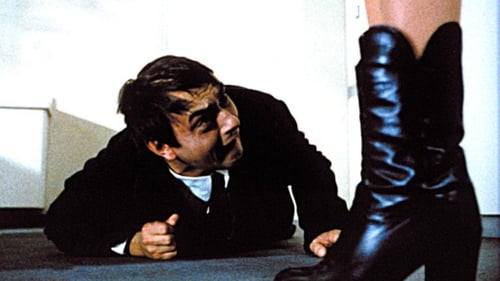
Walters Mutter
Безумные попытки голодающего и беспорядочного писателя, Вальтера Кранца выклянчить, занять или украсть хоть сколько-нибудь денег, чтобы выжить, и в то же время придать некий смысл своей суматошной жизни. Будучи неспособным написать достаточно для получения гонорара от издателя, он разыскивает женщину, которая, как он воображает, является проституткой, и интервьюирует ее. Он любит декламировать стихи, авторство которых его грубая жена приписывает знаменитому защитнику гомосексуальности, мистическому поэту Штефану Георге. Это вдохновляет Вальтера пристально взглянуть на «гей-сцену», и он быстро становится там своего рода знаменитостью.

Oma Wuttke
Directed by Alfred Vohrer, and written by Jürgen Lodemann and Werner P. Zibaso, «Anita Drogemöller und die Ruhe an der Ruhr» is a 1976 Crime film . Monique van de Ven and Harald Leipnitz are starring, alongside Helga Anders, Reiner Schöne, Brigitte Mira and Dirk Dautzenberg.

Frau Häberle
When they start losing family members and neighbors due to WWII and the Nazi government's policies, a quiet married couple becomes disillusioned and begins spreading leaflets against the government - a crime punishable by death.
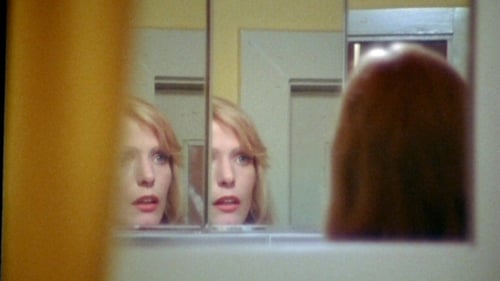
Mutter
Семья Штаудте — представители среднего класса. Маргот после рождения второго ребенка начинает переживать странную депрессию, внушая себе страх перед безумием. Ее муж Курт постоянно занят и не хочет вникать в ее психологические проблемы. Этажом ниже живут родственницы мужа — мать и сестра. Своим вмешательством в семейную жизнь Курта и Маргот и враждебным отношением к последней они только усугубляют ситуацию. Маргот пытается найти поддержку вне семьи…
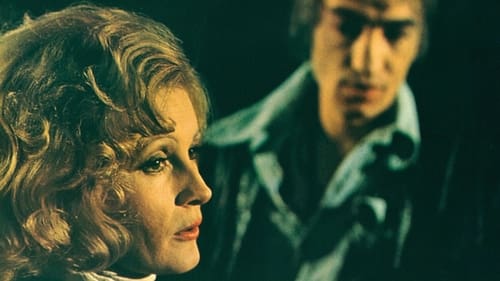
Emma Küsters
Бригитте Мира представляет домохозяйку, Эмму Кюстерс, чей муж, безропотный рабочий, не выдержал однажды нервного напряжения, убил своего босса и покончил жизнь самоубийством. Бедная вдова тщетно пытается понять своим жалким умом: отчего это произошло? Какова причина отчуждения её детей, равнодушия окружающих, нахальства и бесцеремонности газетчиков, решивших раздуть настоящий скандал и сделать из покойного супруга одиозную фигуру сумасшедшего или неуравновешенного негодяя?

Betty Hopfen
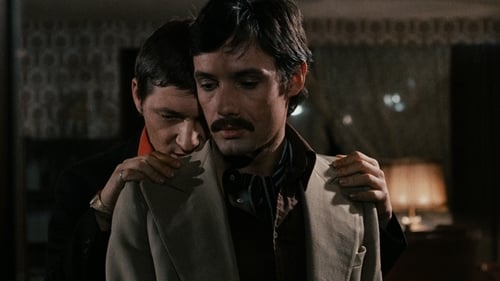
Shopkeeper #2
Фокс Биберкопф простой, неотесанный, добрый и наивный гомосексуалист, подрабатывающий в цирке как «живая голова». Он одержим идеей выиграть много денег в лотерею и действительно выигрывает огромную сумму в 500 тыс. марок. В тот же день Фокс знакомится с Ойгеном Хиссом, гомосексуалистом совсем из другой среды. Его новый знакомый и его друзья разбираются в классической музыке, винах, умеют вести себя за столом, читают книги и хорошо одеваются. Фоксу, естественно, не место в таком обществе и приспособиться к нему он не может, но, когда у человека есть деньги, на очень многое закрывают глаза. Фокс и Ойген становятся любовниками, а через какое-то время утонченный и безукоризненно воспитанный сын владельца большой типографии, переживающей финансовые трудности, начинает тянуть деньги из своего доверчивого сожителя с ловкостью, какая не снилась и самым коварным дамам.

Herself
A pseudo variety show about the Aufbau-Era, the time of the German 'economic miracle'. Brigitte Mira recounts her four husbands through song and joke, on an series of artificial sets.

Gloria Miranda

Haushälterin Käthe
До 1828 года Каспар Хаузер, двадцати лет, жил в пещере, прикованный к полу цепями. Со времени своего рождения он ни с кем не общался, не умел ни говорить, ни читать, ни писать, а видел только одного человека, который время от времени приносил ему еду. В один прекрасный день этот человек вытащил его на своей спине наружу, научил ходить, а потом оставил посреди города с запиской...
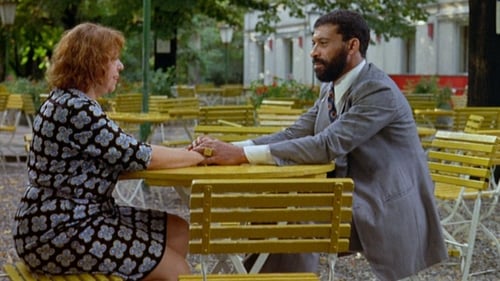
Emmi Kurowski
Что делать, если шестидесятилетнюю немецкую вдову привлекает марокканец, лет на тридцать моложе ее? А если это любовь? А может, просто «встретились два одиночества»?

An African-American GI retires from the US Army in West Berlin to live with his (white) girlfriend, who already has a baby with another black man. After an argument with her family, she deserts him as well. Despite finding a job and a new place to live, he keeps running into racism, which also manifests itself in sexual intimidation.
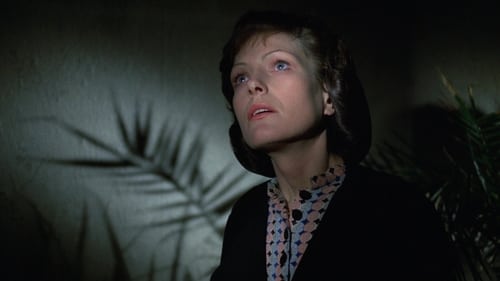
Louise Engel
Фрица Хармана арестовывают за совершение нескольких мелких преступлений. В обмен на свободу, он вынужден сотрудничать с полицией в качестве информатора. Полицейские и не подозревают, что Фриц завлекает к себе домой подростков без определенного места жительства, напаивает их, растлевает, а потом самым жестоким способом убивает. На следующий день близлежащее бистро предлагает посетителям восхитительный и нежный «окорок без костей», приготовленный из мяса несчастных подростков…

Frau Löffler

Frau Schmolke

Hauswirtin Bauer

Wirtin

Mrs. Scholler

Rose Schuh
West German crime film directed by Rolf Olsen and starring Curd Jürgens, Andrea Rau and Corny Collins. It is set in the red-light district of St. Pauli in Hamburg.

Tante Wilhelmine
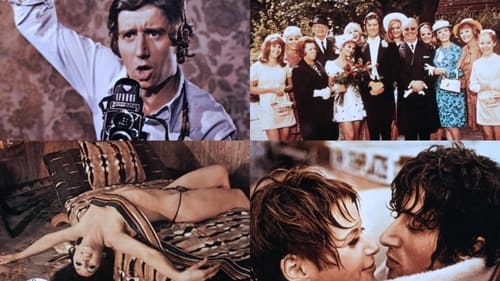
Mrs. Bütow

Molly Zwitscherini

Erste Amme

Molly Zwitscherini

Sängerin

Dolly Tate

Frau Pusebach

Thea
Saleswoman Jenny is crazy about the painter Jack. But Jack does not want to marry, even though he loves Jenny passionately. So Jenny looks elsewhere to find the right man. She marries twice, but always ends up back with Jack and gives herself to him with no attachments. Will Jack and Jenny find true love? Of course!

Madame Helene

Köchin

Frau Sommer

Mama

Frau Ohl
Cautionary drama, with vigorous attack on Germany's laws governing abortion.

Clementine Duquenoy

Mechthilde von Kiefernspeck
1838: Fritz Jüterbog and Ottilie von Henkeshofen love each other, but the difference in status is too great for Ottilie's parents to give their consent to a marriage. And so Fritz sets off for America and returns from there 20 years later as a made man to ask for Ottilie's hand in marriage again. In the meantime, however, Ottilie - believing that Fritz had long since forgotten her - is married in a manner befitting her status, but very unhappily. Fritz, who is highly successful as an entrepreneur, is elevated to hereditary nobility because of his great services to the fatherland. It is too late for a union with Ottilie, but despite the years that pass, the two cannot forget their love. 75 years later, Fritz and Ottilie have died in the meantime, their grandchildren Fred and Tilla meet and fall in love.

Mutter Reitner, Strafgefangene

Marie Ducrot

Lady Schocker, Journalistin

Madame Dupont

Frau Hinze

Sophia

Madame Pillar

Tante Theresa
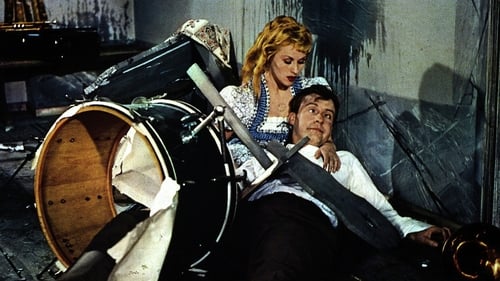
Frau Knax

Frau Mertens
The chorus girl Caterina Duval gets the chance of her life when hired as stand-in of a famous star. On the opening night Catarina is singing, dancing and stepping into the hearts of the audience.

Dirne
Long before he played the corpulent Goldfinger, German actor Gert Froebe was a scarecrow-skinny comedian. In Berliner Ballade, Froebe makes his screen debut as Otto, a feckless Everyman who tries to adjust to the postwar travails of his defeated nation. Stymied by black-market profiteers and government bureaucrats, Otto begins fantasizing about a happier life at the end of that ever-elusive rainbow. Director R. A. Stemmle doesn't have to strive for pathos: he merely places his gangly star amidst the ruins of a bombed-out Berlin, and the point is made for him. Filmed in 1948, Berliner Ballade was later released in the U.S. as The Berliner.




















